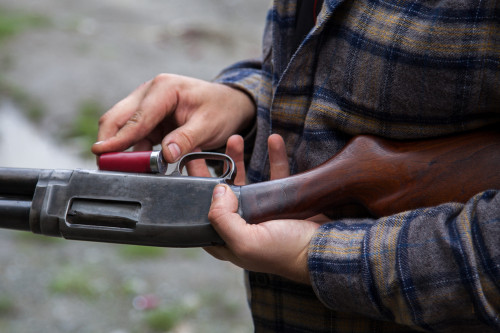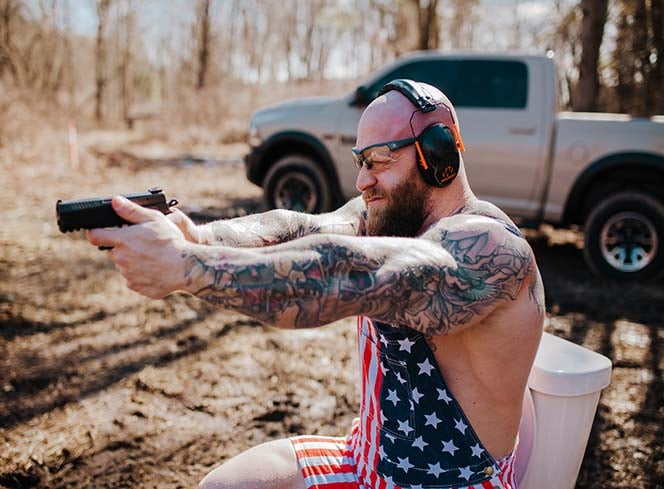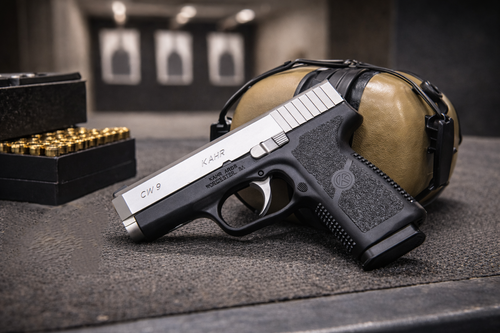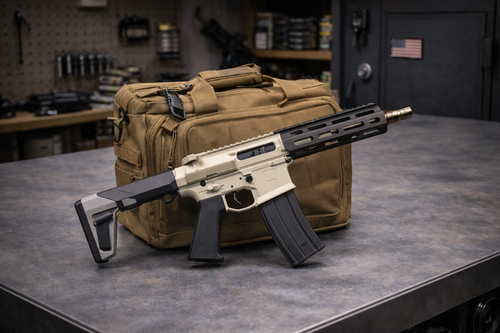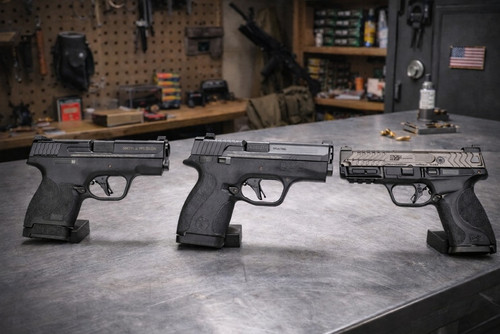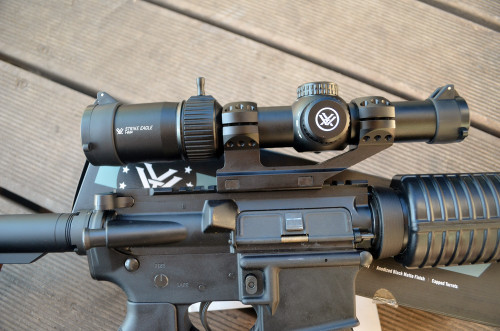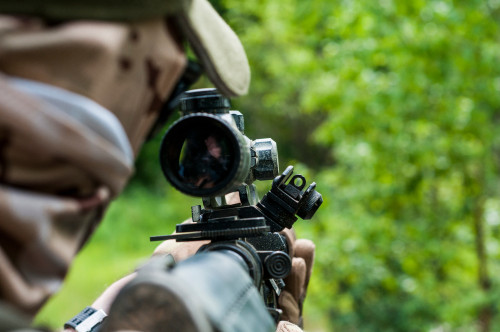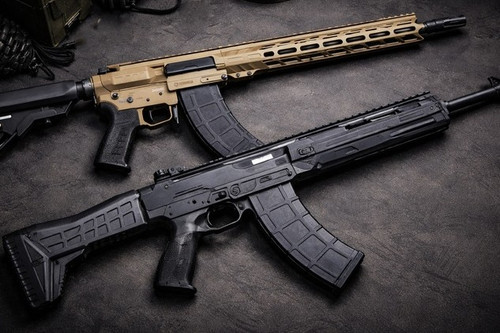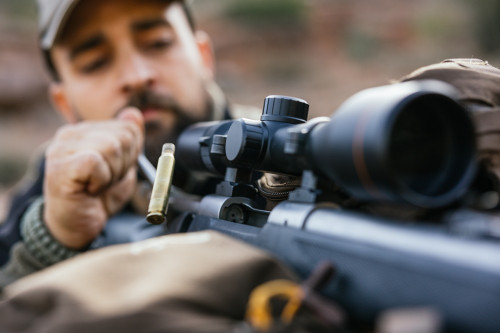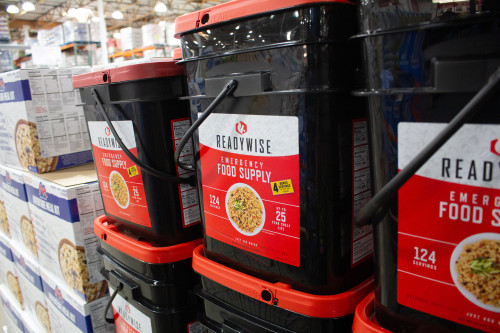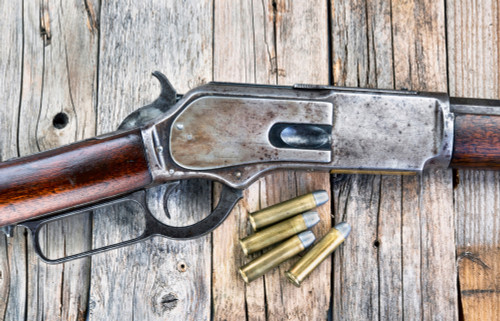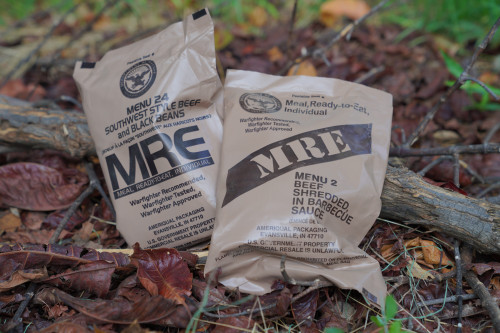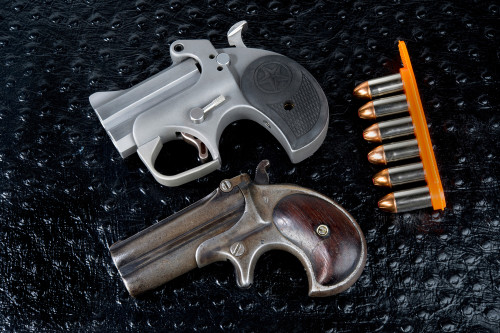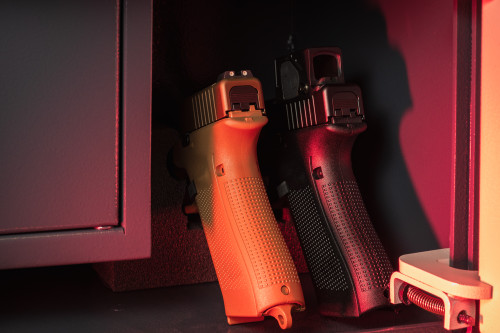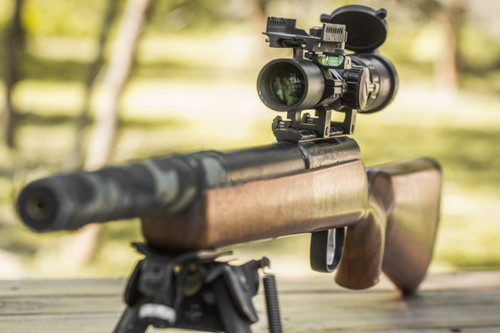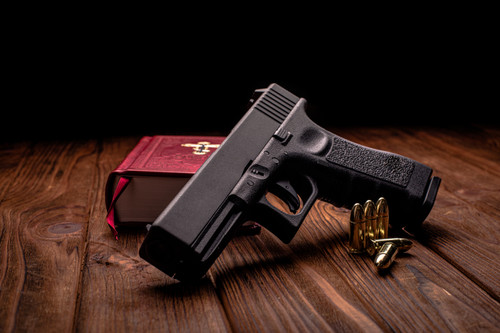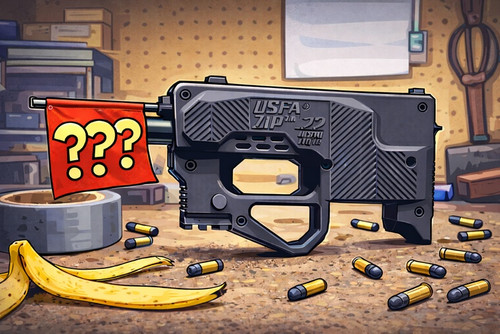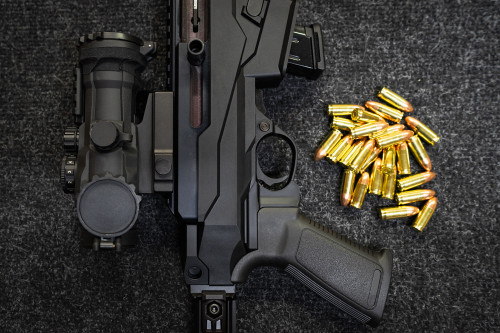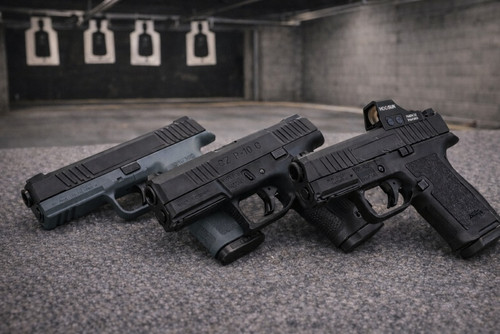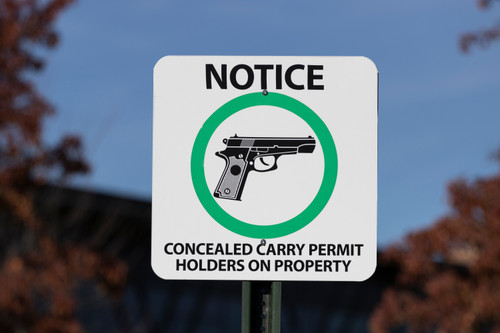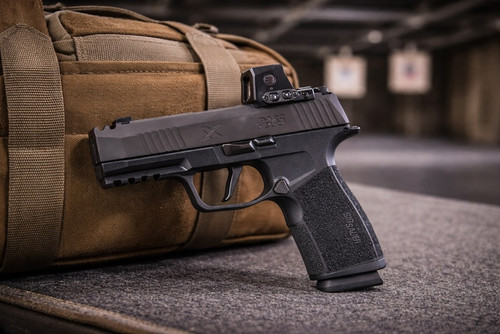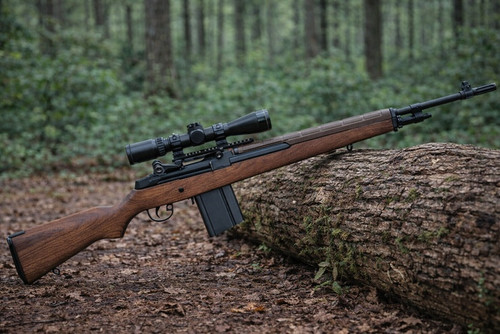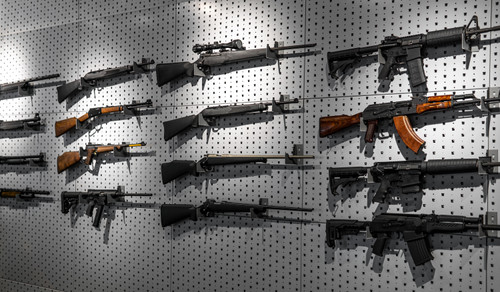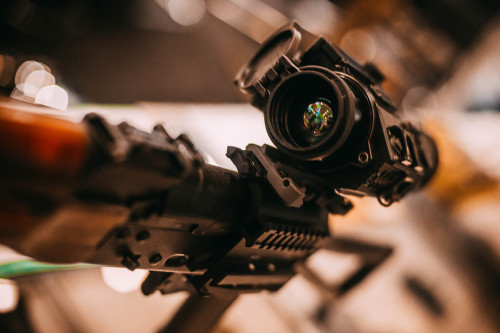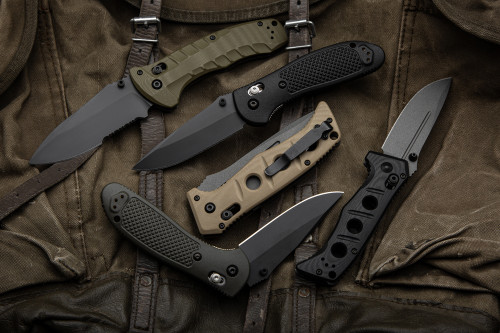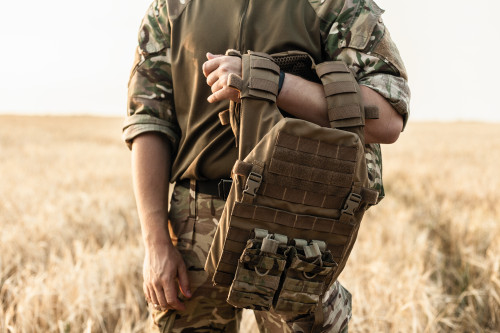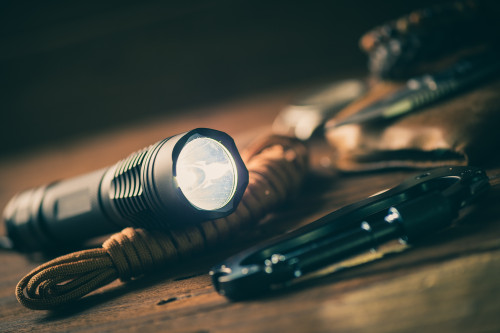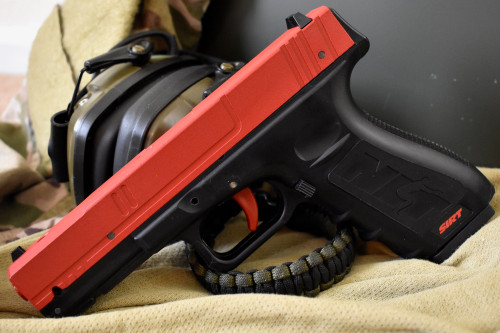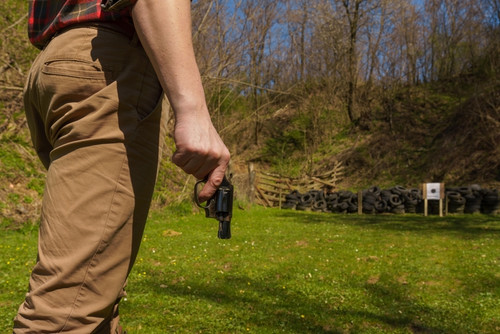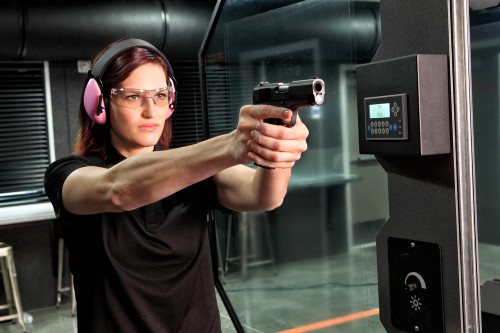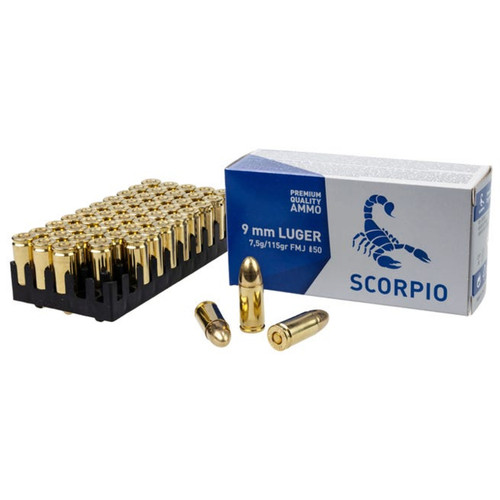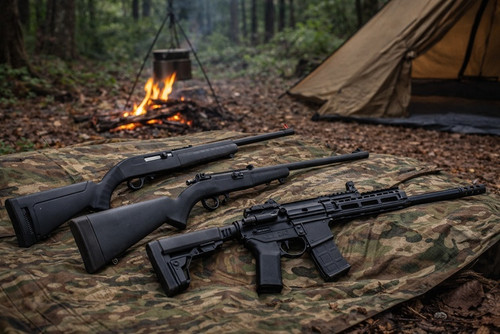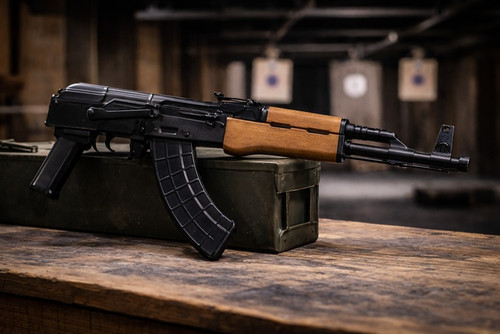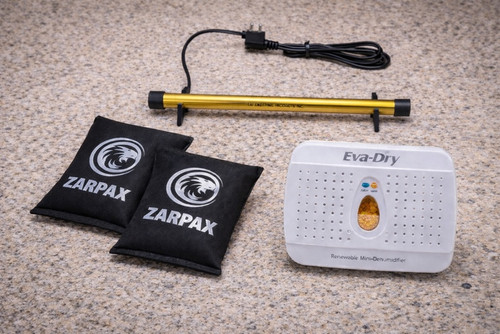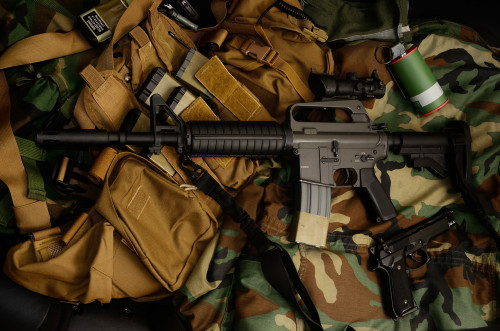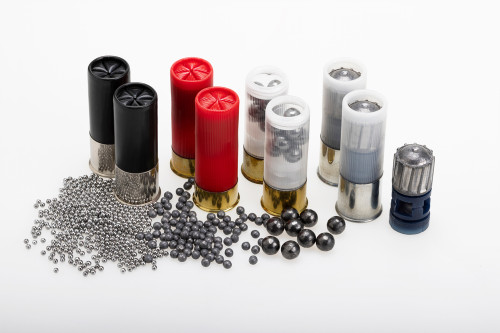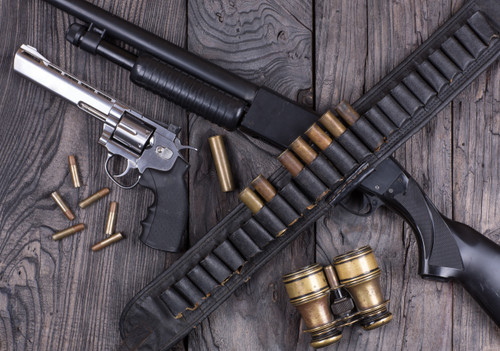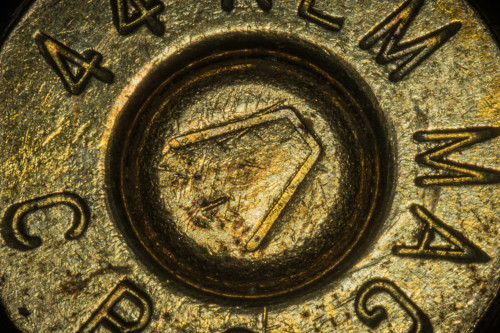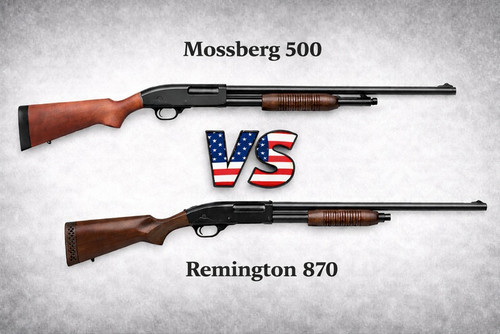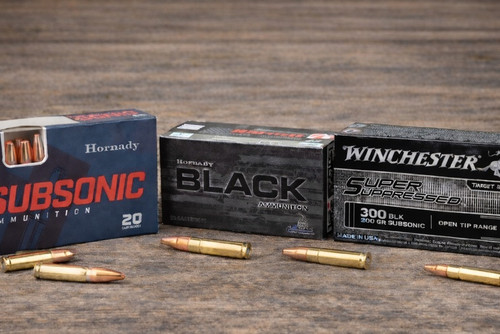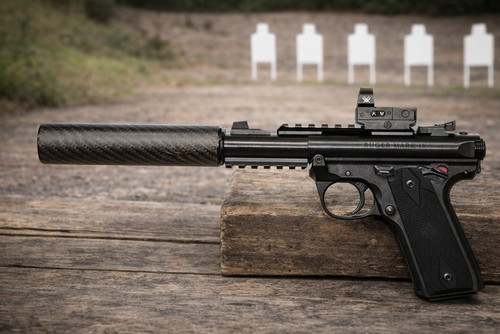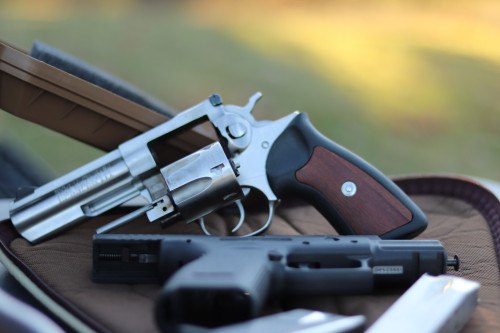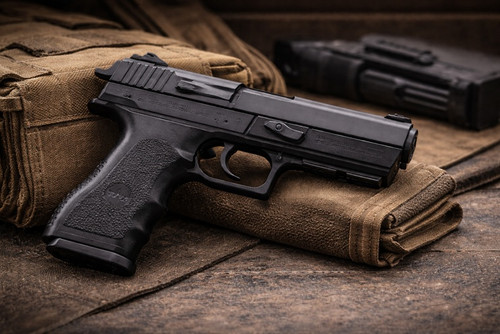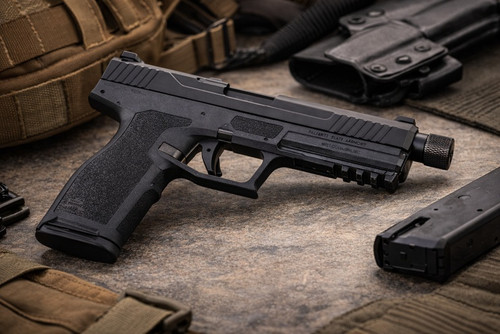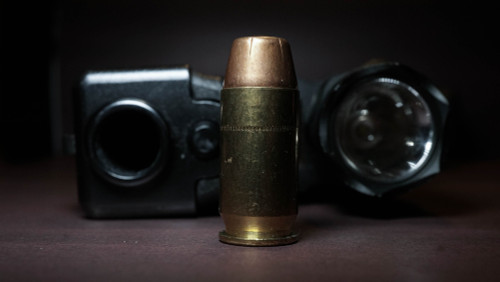With rifles and handguns, choosing ammo is pretty simple. With shotguns, things get a little more complex due to the variety of barrel and ammo designs. If you’re confused by terms like Foster slug or rifled barrel, or find yourself wondering, “Can I shoot a rifled slug through a smooth bore?” — you’re definitely not alone.
The short answer is yes, you can shoot a rifled slug through a smooth bore shotgun. However, to truly understand the dynamics of shooting slugs, you’ll want to dig a little deeper into the subject. In this article, we’ll break down the basics of shotguns, barrels, and slugs while answering some of your frequently asked questions about these versatile firearms.
Shotgun Overview
Shotguns are (typically) long-barrelled firearms commonly used for bird hunting, small- and medium-game hunting, and home defense. Shotguns are designed to shoot close-range, fast-moving targets but lack the range and accuracy of high caliber rifles.
Shotguns can fire shot (hence the name) or slugs. Shot refers to a cluster of small pellets that exit the barrel and spread out to cover a large area, which is effective for hunting quick things like birds (and home intruders). Slugs, on the other hand, are single projectiles used to hunt big game.
Shotgun barrels can be smooth bore or rifled, with the former being much more common. As the name suggests, smooth bore barrels are smooth on the inside, naturally lacking the corkscrew rifling common in handguns and rifles. The lack of rifling in the barrel minimizes resistance, which allows for greater power at the expense of accuracy.
Rifled shotgun barrels are more of a specialty item with fewer applications. In truth, they’re almost exclusively used for firing slugs. Shotguns with rifled barrels are also called slug guns.
Choke refers to the constriction at the end of a shotgun barrel, which is intended to control the spread of shot for different applications. Choke can be achieved through barrel design or through screw-on specialty attachments (also called chokes). Both smooth bore and rifled barrels can be choked.
Image Credit: https://www.shootingillustrated.com/content/the-truth-about-shotgun-slugs/
Shotgun Slugs Explained
A slug is basically like a big bullet, usually made from lead, copper, or some other metal. It delivers a lot more force than shot pellets, as all the power is concentrated in a single projectile. Slugs are exclusively used for hunting large game (moose, elk, caribou, and bear) at relatively close range.
Slugs are at least double the weight of a rifle bullet, which means slugs are slower, have less range, and are safer for hunting use in areas close to human populations or where hunting with a rifle might be illegal.
Slugs are available in two main types (full bore and sabot), each with different features:
Full Bore Slugs
Full bore slugs (also called rifled slugs) are designed to be fired through smooth bore barrels. These slugs typically feature rifled grooves along the side of the projectile which add some spin to a fired slug. Despite the name, rifled slugs are not meant to be fired through rifled barrels. They are designed to be fired from a smooth bore barrel only.
There are two common types of full bore slugs:
- Brenneke slugs are the original rifled slugs, developed back in the 1880s. These projectiles include a finned tailpiece designed to add stability during flight, which can improve accuracy.
- Foster slugs were developed in the 1930s. The design is similar to the Brenneke slug but lacks the tailfin. The overall shape is more bullet-like in appearance.
Sabot Slugs
Sabot slugs (pronounced “say-boh”) are specifically designed to be fired through a rifled barrel. These slugs are wrapped in a plastic cylinder that gains spin from the barrel rifling and transfers it to the slug. The plastic wrapper falls off in flight.
As the actual slug doesn’t contact the rifle bore (due to the plastic shell), sabot slugs can be made from a variety of harder metals and alloys such as steel.
As the sabot design is more complex than full bore slugs, these rounds tend to be more expensive. So while you could theoretically shoot them with a smooth bore barrel, there’s no benefit to doing so — you’re just wasting money.
Can I Shoot Rifled Slugs Through a Smooth Bore Barrel?
Yes. Full bore, rifled slugs are specifically designed to be fired through a smooth bore barrel. While the rifling on the slug provides some extra stabilization, that’s not the main purpose of the design. Instead, the rifling is designed to allow the slug to deform.
However, do not shoot rifled slugs through rifled barrels. This is a common mistake due to the confusing naming convention. While there is some debate about whether rifled slugs will actually damage a rifled barrel, we figure it’s easier (and safer) to err on the side of caution and stick with the slugs that were designed for the barrel.
Unless the zombie apocalypse is upon us, in which case, do what you gotta do.
Can I Shoot Sabot Slugs Through a Smooth Bore Barrel?
Yes, but there’s no reason to do so. Sabot slugs are specifically designed to be fired through a rifled barrel, and this design adds additional cost to the round. If you’re shooting a sabot slug through a smooth bore barrel, you’re just wasting money. Not a great plan.
Instead, just use normal full bore slugs that are specifically designed for smooth bore barrels and are much less expensive than sabot slugs.
Can I Shoot Slugs Through a Choke?
No. While some may disagree, it is generally not recommended to fire slugs through a choke on the barrel of a shotgun.
Chokes are designed to constrict the shot pattern, improving accuracy and performance when shooting shotshells which contain multiple pellets (like birdshot or buckshot). A choke restricts the muzzle diameter, allowing for better control and distribution of the shot.
However, slugs are solid projectiles that rely on their own mass to maintain accuracy over longer distances. When a slug passes through a choke, the narrowing of the muzzle puts increased resistance on the slug. In turn, this exerts excessive pressure on the choke and subjects it to forces beyond its intended design. One or two shots may not cause any noticeable damage, but over time, this can lead to accelerated wear and tear. Over time, the choke may fail completely.
Which Barrel Type is Best For Hunting?
As you can probably guess, this depends on what you’re hunting. You will want to use shot for hunting birds and small game, which means using a smooth bore barrel. While this might seem counterintuitive because smooth bores are less accurate, it’s the spread of the shot that makes it effective. You only need to hit your target with one of several shot pellets to succeed.
However, if you are hunting big game (and for practical or legal reasons you can’t use a rifle) then a rifled barrel is your best bet. You gain improved accuracy and significantly more stopping power with the sabot slugs. The tradeoff is that you need to be relatively close (compared to a rifle) to reliably put your rounds on target.
Which Barrel Type is Best For Home Defense?
For home defense, a smooth bore barrel firing shot is your optimal choice for two main reasons. First, while shotguns are powerful, shot pellets have much less penetrating power than high caliber handguns or rifles. This reduces the likelihood of collateral damage in a self defense situation.
Second, if you’re facing some goblin intruder at two in the morning, you’re not in an optimal situation to be shooting accurately. (Side note: That’s why it’s also important to get the right shotgun for home defense).
While slugs have no problem putting holes in bad guys, you might end up putting holes in your house as well — and your neighbor’s house, while you’re at it. In other words, there is an increased risk of collateral damage. Plus, you need to be much more accurate with a slug than when using shot. With self defense, we need to take every advantage we can.
Which Barrel Type Is Best for Defending Against Wild Animals?
The other self defense situation to consider is when you’re out hunting, hiking, fishing, or participating in other activities out in the wild. This might seem absurd, but it’s an important consideration if you’re out there alone, far from civilization. Bears, big cats, and more all represent potential threats you’ll want to plan for.
While medium sized predators might be stopped or turned away by shot pellets, larger apex predators will just charge right through the shot. Even high caliber handguns and rifles often fail to stop nature’s toughest beasts. If you’re face-to-face with a bear, slugs are likely your best option.
With that said, bear spray is almost universally recommended as the primary deterrent and best defense against bears. This isn’t an action movie — use what works.
Which Barrel Type Is Best?
As you can probably guess, it depends on what you plan to do with it. The most versatile barrel type is the smooth bore, as it can fire both shot and slugs. Unless you have a specific reason to need a rifled barrel (i.e., you’re hunting big game), the smooth bore barrel is your best bet.
Also, be sure you check regulations in your area. Rifled shotgun barrels are outlawed in some places for hunting purposes.
Conclusion
By now, you should have a better understanding about shotgun barrels and slugs and how you can use them in different circumstances. While most people use a shotgun to fire traditional shot, slugs are a great option for several scenarios, provided you use the right ammunition with the right barrel. When in doubt, check with an expert gun dealer before you purchase a new box of ammo.
As with everything to do with guns, it’s important to practice and test new ammo thoroughly before taking your firearm into the field or depending on it for self defense. To do that, you’re going to need a good supply of reliable ammunition. Whether you’re looking for buckshot, birdshot, or slugs, we’ve got them here at Pro Armory. Our expert team of veterans and firearms enthusiasts can help you find the perfect ammo and gear for your shotgun.
Browse our shotgun ammo for a full selection of hunting and self defense loads.



